Premium Only Content
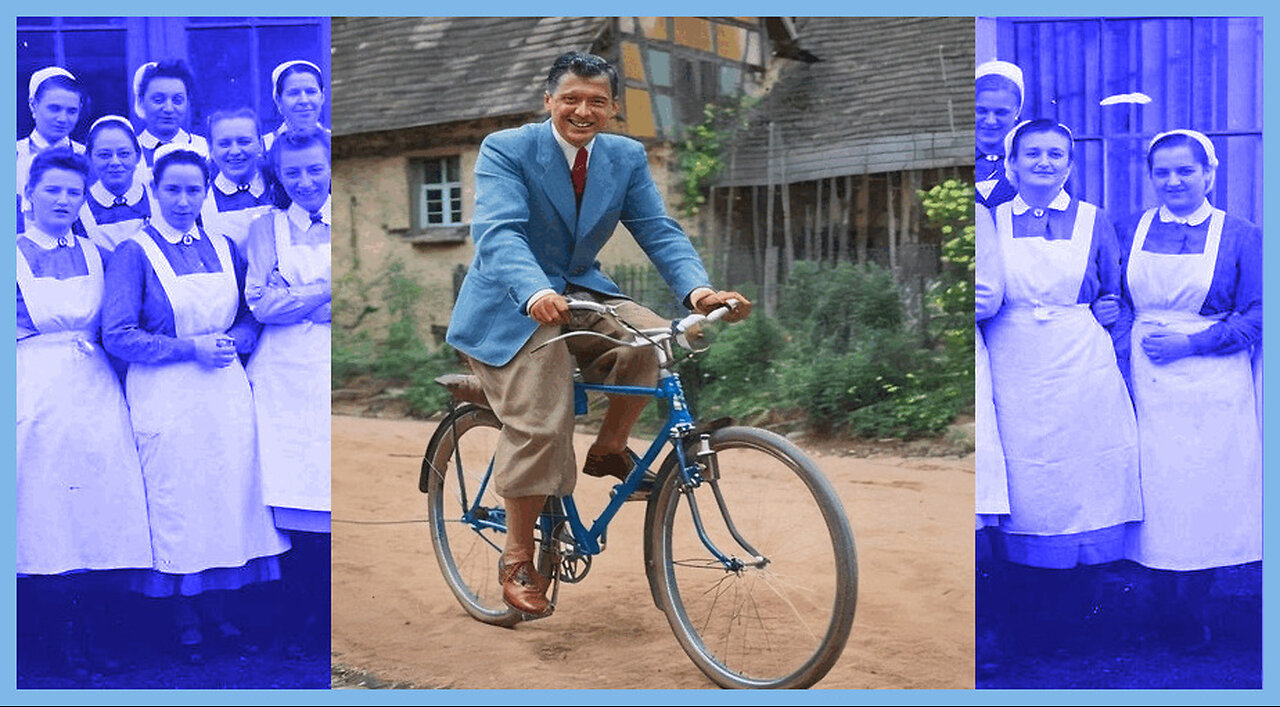
Dr. Joseph Mengele: The Shocking Truth! ~ Part 2.
The original title of this film was 'I Heart Mengele.' In this deeply personal film Eric Hunt, apparently confined during the Covid epidemic and suffering the introspection common to many at that time of reflection, departs from his normal film style to produce a sometimes zany and meandering exposition of Dr. Mengele, who, arguably along with Adolf Hitler is the most lied about and defamed man in history.
In David Lynch’s movie Mulholland Drive, meeting at a Winkie diner in Hollywood the character of Dan tells Herb about a recurring dream he’s been having, which is set in that same Winkies, at neither day nor night – in some kind of subliminal space. He tells him that by coming to the place of his dream, he hopes to rid himself of the “god-awful feeling” that has been tormenting him. As he recounts the dream, which features Herb walking to the counter before encountering a terrifying creature, a crawling burnt corpse normally lurking around the back of the restaurant. One feels that as the ghost of a terrible murder haunts the killer to the end of his days, this apparition of a burnt corpse at the back of front that is Hollywood is the Holocaust lie; the bloodstain that cannot be removed, the uneasy sense which has ever to be pushed to the back of the memory of all the liars in Hollywood who created and still sustain it. In the darkness of the night, lying in his bed at the end of a day’s shooting of yet another Holohoax movie, the director grabs a bunch of sleeping tablets to shut out the truth about his evil fabrications and thinks instead of buying his next yacht. Even a Zionist Jew, surprising to all who watch the Gaza genocide, is capable of some sense of guilt, however limited. It is such an atmosphere of encountering the Big Lie head on, that Irebodd tackles his project,
As in Francis Ford Coppola’s movie Apocalypse Now, Marlyn Brando’s character Colonel Walter E. Kurtz, facing up to the entire superstructure of death he has built around him calls out “The Horror…The horror!” Both of these examples illustrate the mind of the filmaker as, completely alone in a covid world gone silent, he faces up to the horror of the unique evil of the liars for lira who defamed and destroyed a kindly doctor in the name of securing the foundations of Palentir-assisted Zionism of eventual world control by Jews, of what they view as the mere cattle of humanity. We observe Irebodd’s anger as a man associated himself with the medical field not only with his views on the Covid situation but with the mistreatment by history of Dr. Mengele. Irebodd displays for us a document recounting treating patients for scarlet fever, the sheer mundanity and sacrifice of the daily grind of a clinician doing his best to save his patients in a difficult environment of war. A man who is then ripped from his son and his family and dies alone under a different identity on a different continent.
In this deeply personal film Eric Hunt, apparently confined during the Covid epidemic and suffering the introspection common to many at that time of reflection, departs from his normal film style to produce a sometimes zany and acid trip like meandering exposition of Dr. Mengele. Mengele, who, arguably along with Adolf Hitler is the most lied about and defamed man in history.
In David Lynch’s movie Mulholland Drive, meeting at a Winkies diner in Hollywood, the character of Dan tells Herb about a recurring dream he’s been having, which is set in that same Winkies, at neither day nor night – in some kind of subliminal space. He tells him that by coming to the place of his dream, he hopes to rid himself of the “god-awful feeling” that has been tormenting him. As he recounts the dream, which features Herb walking to the counter before encountering a terrifying creature, a crawling burnt corpse normally lurking around the back of the restaurant. Watching that scene from the perspective that the Holocaust is the single most important message of that particular film industry, one feels that just as the ghost of a terrible murder haunts the killer to the end of his days, this apparition of a burnt corpse at the back of the front of Hollywood is the Holocaust lie; the bloodstain that cannot be removed, the uneasy sense of fraud which has ever to be pushed to the back of the memory of all the liars in Hollywood who created and still sustain it. In the darkness of the night, lying in his bed at the end of a day’s shooting of yet another Holohoax movie, the director grabs a bunch of sleeping tablets to shut out the truth about his evil fabrications, and thinks instead of buying his next yacht or abusing his next child. Even a Zionist Jew, surprising to all who watch the Gaza genocide, is capable of some sense of guilt, however limited.
It is such an atmosphere of encountering the Big Lie of the Holocaust head on, allowing its breath and depth to stare back at him from his mind, that Hunt tackles his project, pursues it in a deep state of contemplation about the injustice done to Mengele, burning all the time with a goyish moral anger and frustration at its success. Just as in Francis Ford Coppola’s movie ‘Apocalypse Now’ when Marlyn Brando’s character Colonel Walter E. Kurtz, faces up to the entire superstructure of death he has built around him and calls out “The Horror…The horror!” Hunt observes the entire moral horror of the Big Lie of the Holohoax in one great revelation in his mind.
Both of these examples illustrate the mind of the filmmaker as, completely alone in a covid world gone silent, he beholds the crimes of the unique evil of the liars for lira who defamed and destroyed a kindly doctor in the name of securing the foundations of Palentir-assisted Zionism, of the eventual world control by Jews of the worldwide masses of non-Jews who they view as the mere cattle of humanity.
We observe Hunt’s anger as a man associated himself with the medical field not only with his views on the Covid situation at the time, but with the mistreatment by history of Dr. Mengele. Hunt displays for us a document recounting treating patients for scarlet fever, the sheer mundanity and sacrifice of the daily grind of a clinician doing his best to save his patients, and showing little extra kindnesses by obtaining for them extra rations in a difficult environment of war. A man who is then ripped from his son and his family and dies alone under a different identity on a different continent.
-
 3:26:25
3:26:25
Joe Donuts Live
5 hours ago🟢 Lost in Space with My Clones: The Alters Adventure Begins
27.5K2 -
 7:20:22
7:20:22
Dr Disrespect
14 hours ago🔴LIVE - DR DISRESPECT - TRIPLE THREAT CHALLENGE - WINNING AT EVERYTHING
210K12 -
 2:35:33
2:35:33
Chrono
6 hours agoBirthday-eve Stream | Helldivers II
23.3K1 -
 54:40
54:40
BonginoReport
1 day agoLABOR DAY SPECIAL! The Best of Nightly Scroll - Nightly Scroll w/ Hayley Caronia (Ep.124)
129K14 -
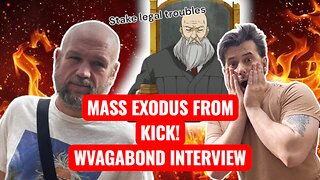 2:39:21
2:39:21
Joker Effect
4 hours agoReviewing the downfall of Kick Streaming. Kick streamers welcome to Rumble! Stake bombshell found!
33.8K1 -
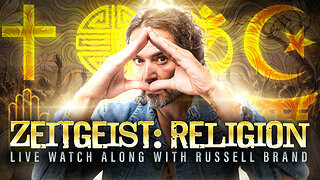 1:06:10
1:06:10
Russell Brand
14 hours agoThe Greatest Lie Ever Told? - SF625
97K111 -
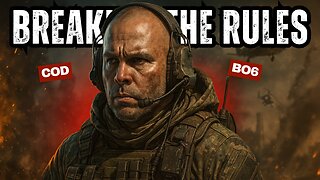 3:25:13
3:25:13
elwolfpr
6 hours agoBlack Ops 6: Rise of the Relentless
12.8K1 -
 LIVE
LIVE
Phyxicx
5 hours agoChillin - For The King - 9/1/2025
13 watching -
 LIVE
LIVE
Spartan
10 hours agoNew Game+ on E33, then back to Halo Grind
38 watching -
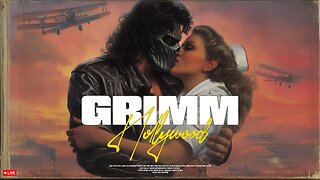 7:12:18
7:12:18
GrimmHollywood
11 hours ago🔴LIVE • GRIMM HOLLYWOOD • SKATE EARLY ACCESS • BRRRAP PACK • READY OR NOT •
20.8K4